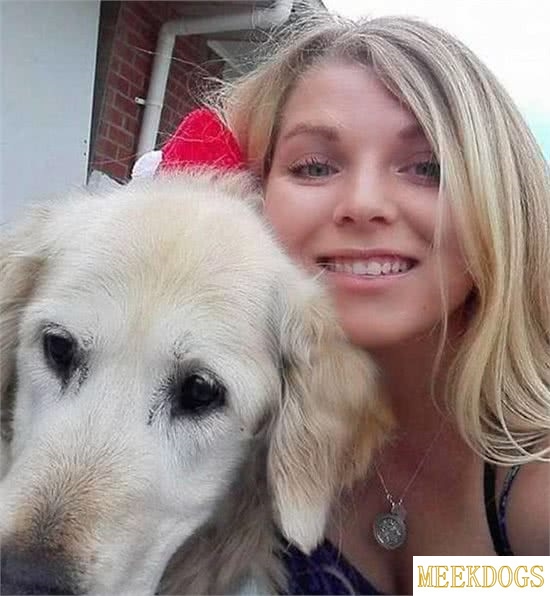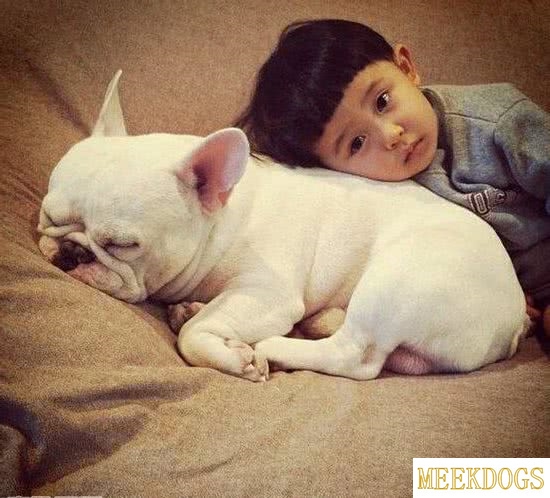What can traumatize a dog
Traumatic events that can affect a dog include loud noises, physical abuse, separation from its pack, or witnessing violent acts.
What can cause trauma in dogs?
1. Loud noises
2. Separation anxiety
3. Abuse or neglect
4. Unpredictable handling
5. Being attacked by other dogs
6. Witnessing violence
7. Fireworks
8. Medical procedures
9. Moving to a new home
10. Loss of a loved one

What happens when a dog is traumatized?
Trauma can be caused by various factors, such as abuse, neglect, or severe punishment, which can lead to behavioral changes, fear, or aggression.
How long can a dog be traumatized for?
Traumatic events can include loud noises, separation from owners, or abuse. The duration of trauma depends on the severity and type of trauma, but it can last for days, weeks, or even longer.

Can dogs get Traumatised?
Yes, dogs can get traumatized. Trauma can result from various factors such as abuse, neglect, or frightening experiences. It can lead to behavioral changes, anxiety, and fear. Owners should be aware of their dog’s needs and provide a safe and supportive environment.
Can dogs get traumatized by yelling?
Yes, dogs can get traumatized by yelling. Loud, harsh voices can cause fear, stress, and anxiety in dogs, especially if it’s a regular occurrence. It’s important to use a calm and assertive tone when interacting with dogs to avoid causing trauma.

What are the first signs of stress in a dog?
Traumatic events for dogs may include loud noises, separation from their owners, or being confined in a small space. The first signs of stress in a dog are usually increased panting, whining, or trembling.
Do dogs remember trauma?
Traumatic experiences can include witnessing aggressive behavior, being abused, or experiencing a natural disaster. Dogs can indeed remember traumas, and their reactions may vary depending on the severity and context of the trauma. Some may exhibit changes in behavior, such as increased aggression or fear, while others may appear to suppress their emotions and exhibit no apparent signs. It is important to provide support and a safe environment for dogs who have experienced trauma.

How can you tell if a dog has PTSD?
Traumatic events that can affect a dog include abuse, neglect, or witnessing aggressive behavior. Signs of post-traumatic stress disorder (PTSD) in dogs include anxiety, fear, and avoidance. To determine if a dog has PTSD, observe their behavior and consult a veterinarian for a proper evaluation.
Can dog’s go into shock from being scared?
Yes, dogs can experience shock from severe fear or trauma. This can lead to physical symptoms such as pale gums, rapid breathing, and a weak or rapid heartbeat. Emotional trauma can also affect a dog’s behavior and mental health, causing long-term issues. It’s important to comfort and reassure dogs during frightening situations to help alleviate their stress.

Did I traumatize my puppy?
1. Traumatic events can include loud noises, separation from owners, or abuse.
2. It’s essential to consider the puppy’s behavior and mood after the event.
3. If your puppy seems scared or anxious, it’s possible you traumatized them.
4. it’s also possible they recovered quickly and don’t hold a grudge.
5. Building trust and providing a stable environment can help your puppy feel secure.
6. Consult a veterinarian or animal behaviorist if you’re concerned about your puppy’s well-being.
How do I regain my dog’s trust?
Trauma can be caused by various factors, such as abuse, neglect, or sudden changes in environment. To regain your dog’s trust, show consistent love and care, provide a stable environment, and slowly build up the relationship through positive reinforcement.

How do I know if my dog is depressed?
Traumatic events like abuse, neglect, or sudden changes in environment can affect a dog’s mental health. Signs of depression in dogs include loss of appetite, lethargy, and reduced interest in usual activities. If you notice these changes, consult a veterinarian for professional advice.
How long does it take an abused dog to recover?
Trauma can be caused by various factors such as abuse, neglect, or separation from the pack. The recovery time for an abused dog depends on the severity and duration of the trauma, as well as the dog’s individual personality and coping mechanisms. It could take days, weeks, or even months for a dog to fully recover, with consistent love, care, and professional help.

How do you approach a traumatized dog?
1. Loud noises
2. Being separated from its owner
3. Being attacked by another animal
4. Experiencing a traumatic event (e.g., car accident)
5. Approach slowly, maintain eye contact, and speak calmly
6. Keep the dog at a comfortable distance
7. Allow the dog to sniff you and become comfortable with your presence
8. Avoid sudden movements or loud noises
9. Offer treats or toys to help the dog feel at ease
10. Create a calm and secure environment
Can you hurt a dog’s feelings?
Yes, dogs can be traumatized and their feelings can be hurt. Some examples include aggressive handling, excessive punishment, and neglect. It’s essential to be gentle and considerate when interacting with dogs to ensure their emotional well-being.

How do I apologize to my dog?
1. Dogs can be traumatized by loud noises, separation anxiety, or rough handling.
2. Apologize by speaking calmly and gently, petting your dog, and providing reassurance.
3. Show remorse by avoiding the trigger and offering extra attention and treats.
4. Dogs understand body language, so maintain eye contact and use a soft tone.
5. Offer a sincere apology and demonstrate positive reinforcement.
Is it OK to hit your dog?
Abusing a dog, including hitting, can traumatize and harm it both physically and emotionally. It is never OK to hit your dog.

What does dog anxiety look like?
Trauma can be caused by various factors, such as loud noises, separation from the owner, or even just a change in routine. Dogs with anxiety may exhibit behaviors like excessive barking, whining, or panting, or they may try to escape or hide. Some may even show aggression or exhibit physical symptoms like trembling or diarrhea.
What are the signs of anxiety in dogs?
1. Loud noises
2. Separation from owners
3. New environments
4. Changes in routine
5. Other dogs or animals
6. Fear of being abandoned
7. Fireworks
8. Medical procedures
9. Restricted movement
10. Unpredictable events
Signs of anxiety in dogs:
1. Excessive panting
2. Pacing or restlessness
3. Barking or howling
4. Destructive behavior
5. Hiding or seeking attention
6. Attempts to escape
7. Loss of appetite or diarrhea
8. Increased salivation
9. Trembling or shaking
10. Change in energy level or mood

What causes dog anxiety?
Traumatic experiences, such as abuse, neglect, or being separated from the pack, can traumatize a dog and lead to anxiety.
How do you tell if dog has been abused?
Trauma can be caused by various factors, such as physical abuse, neglect, or emotional distress. Signs of abuse include fearful or defensive behavior, poor socialization, and physical injuries.

Do dogs ever get over being abused?
Yes, dogs can be traumatized by abuse, and they may not fully recover from the emotional scars. with love, patience, and professional help, they can learn to trust and enjoy life again.
Do dogs love their abusive owners?
Yes, dogs can be traumatized by abusive owners. Dogs are pack animals and form strong bonds with their caregivers. They may exhibit signs of stress, fear, or aggression as a result of abuse, but it’s important to note that dogs do not inherently love their abusive owners.

How do you help an abused dog?
Trauma can be caused by abuse, neglect, or severe stress. To help an abused dog, provide a safe and calm environment, ensure basic needs, and consult a veterinarian or animal professional for further assistance.
Do dogs cry?
Yes, dogs can cry, just like humans. Traumatic experiences for dogs may include witnessing violent acts, being abused or neglected, or experiencing a loss of a companion. These events can cause emotional distress and lead to behavioral changes, such as increased aggression or fearfulness. It’s important to provide emotional support and a safe environment for dogs who have been traumatized.

Do dogs remember past events?
1. Traumatic events can include loud noises, physical abuse, or being abandoned.
2. Dogs can remember past events to some extent, especially if they are associated with strong emotions.
3. dogs’ memories are not as precise as humans’, and they may conflate different events or experiences.
4. It’s important to provide a safe and loving environment to help a traumatized dog heal and thrive.
Why is my dog suddenly scared?
Trauma can cause sudden fear in dogs, such as a loud noise, a fall, or an encounter with an aggressive animal.

Why is my dog acting weird all of a sudden?
A dog can be traumatized by various factors, such as loud noises, separation anxiety, or a change in its environment. This could lead to unusual behavior, like excessive barking, hiding, or aggression. To help your dog, try understanding its needs and providing a stable, supportive environment. Consult a veterinarian if necessary.
Why is my dog spooked?
Traumatic events, such as loud noises, scary encounters, or separation anxiety, can spook a dog. Understanding your dog’s fear is essential for providing comfort and addressing the underlying issue.

Can a dog be traumatized after being attacked?
Yes, a dog can be traumatized after being attacked. A dog can experience psychological and emotional trauma due to a frightening or painful event, such as being attacked by another animal or person. This trauma can lead to behavioral changes, such as increased aggression, fear, or anxiety, and can affect the dog’s overall well-being.
Can a dog be mad at you?
Yes, dogs can be traumatized and show signs of being upset or mad at their owners. This can happen if they experience negative interactions, such as being punished or abandoned, or if they have a fearful or anxious response to certain situations. it’s essential to remember that dogs don’t hold grudges the way humans do, and with love, patience, and positive reinforcement, they can overcome these issues and bond with their owners again.

Do dogs forgive their abusers?
Traumatic events can include abuse, which can deeply affect a dog’s mental well-being. It’s difficult to generalize whether dogs can forgive their abusers, as it varies depending on the individual dog’s personality and the severity of the trauma. it’s crucial to provide them with a safe and loving environment to help them recover and build trust again.
Can dogs feel regret?
Yes, dogs can feel regret. Traumatic experiences, such as abuse or neglect, can leave lasting emotional scars on dogs, causing them to feel regret and exhibit behavioral changes.

How do dogs feel when you yell at them?
Yelling at dogs can traumatize them by causing fear, stress, and confusion. Dogs may feel scared and anxious, as yelling can be interpreted as a sign of aggression. This can lead to negative behaviors, such as avoidance or aggression towards the person yelling. It’s important to use positive reinforcement and communicate with dogs in a calm and gentle manner to build trust and understanding.
What are the signs that your dog doesn’t like you?
Traumatizing a dog could include inflicting physical pain, fear, or emotional distress. Signs your dog doesn’t like you may include avoiding eye contact, growling, or displaying aggressive behavior.

How can an abused dog gain confidence?
Trauma can be caused by abuse, neglect, or harsh training methods. To help an abused dog gain confidence, provide a safe and calm environment, establish a trusting relationship, and use positive reinforcement training. This will help the dog feel secure and build its self-esteem.
How do you show a dog you mean no harm?
1. Approaching a dog too quickly or forcefully.
2. Staring directly into a dog’s eyes.
3. Grabbing or roughly handling a dog.
4. Scaring a dog with loud noises or harsh actions.
5. Displaying aggressive body language.
6. Not respecting a dog’s personal space.
7. Interrupting a dog while it’s eating or playing.
8. Unpredictable or erratic movements.
9. Showing fear or anxiety towards a dog.
10. Offering food or treats without permission.
To show a dog you mean no harm:
1. Approach slowly and calmly, allowing the dog to sniff you.
2. Maintain eye contact, but avoid staring intensely.
3. Use a gentle touch and speak in a soothing voice.
4. Be mindful of your actions and avoid sudden movements.
5. Respect personal space and give the dog time to adjust.
6. Be patient and give the dog time toize you.

What emotions do dogs not feel?
1. loud noises
2. separation anxiety
3. physical abuse
4. lack of socialization
5. neglect
6. fear
7. confusion
8. pain
9. hunger
10. frustration
These are the emotions dogs may not feel:
1. guilt
2. shame
3. envy
4. spite
5. schadenfreude
6. pride
7. embarrassment
8. regret
9. anticipation
10. empathy
Should you growl at your dog?
A dog can be traumatized by aggressive behavior, such as growling. it’s important to note that dogs may interpret growling as a sign of dominance, which could lead to fear or submission. Instead, use positive reinforcement techniques to train and communicate with your dog.

Do dogs say sorry?
Trauma can be caused by various factors, such as abuse, neglect, or frightening experiences. Dogs do not have the ability to express apologies like humans do, but they can show signs of repentance or remorse through their behavior, such as avoiding certain situations or people, or displaying increased affection.
Is a dog’s lick a kiss?
A dog’s lick can traumatize it if it’s a result of an injury or an aggressive behavior, but it’s not necessarily a kiss. A dog’s lick can be a sign of affection, but it can also be a way to clean or soothe itself.

Do dogs understand kisses?
Yes, dogs can be traumatized by certain experiences, just like humans. dogs do not understand kisses in the same way humans do, as they lack the cognitive and emotional abilities to interpret them. Instead, dogs use their senses and body language to communicate with humans and other dogs.
Does smacking a dog on the nose hurt them?
1. Yes, smacking a dog on the nose can hurt them.
2. Other things that can traumatize a dog include physical abuse, neglect, and abandonment.
3. Dogs are sensitive to their environment and can be traumatized by loud noises, separation from their owners, or being confined to a small space.
4. It’s important to be gentle and understanding when interacting with dogs to avoid causing trauma.

What dog breeds have the most anxiety?
Traumatizing a dog can involve causing severe stress or fear, which can lead to behavioral changes. Some dog breeds are more prone to anxiety than others, with common breeds including German Shepherds, Border Collies, and Golden Retrievers. This may be due to their high energy levels, strong herding instincts, or sensitivity to changes in their environment.
What happens when a dog gets stressed?
Trauma can be caused by various factors that stress a dog, such as loud noises, separation anxiety, or abuse. When a dog is stressed, it may exhibit behavioral changes, such as excessive barking, trembling, or hiding. This can lead to long-term emotional issues if not addressed promptly.

Do dogs remember trauma?
Trauma can be caused by various factors, such as abuse, neglect, or severe accidents. Dogs can indeed remember traumatic experiences, and their reactions may vary depending on the severity and nature of the trauma. Some dogs may exhibit fearful or anxious behavior, while others may display aggressive tendencies. It’s crucial to provide appropriate care and address any behavioral issues caused by trauma to ensure a dog’s well-being.
Can vets tell if an animal is abused?
1. Traumatic events can include physical abuse, neglect, or abandonment.
2. Veterinarians can often identify signs of abuse or trauma, such as injuries, behavioral changes, or poor body condition.
3. it’s important to consider that not all dogs exhibit obvious signs of abuse, and some may hide their pain or stress.
4. Therefore, it’s crucial for veterinarians and pet owners to work together to ensure the health and welfare of the animal.







